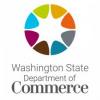State
How fixed wireless access emerged a killer app in 5G
We at Mobile Experts have been tracking the fixed wireless access (FWA) market for many years. In 2017, we predicted that 5G FWA would be a success.

Biden-Harris Administration Approves California’s “Internet for All” Initial Proposal
The Department of Commerce’s National Telecommunications and Information Administration (NTIA) has approved California’s Initial Proposal for the Broadband Equity, Access, and Deployment (BEAD) program, a cornerstone of the Biden-Harris Administration’s “Internet for All” initiative. This approval enables California to request access to funding and begin implementation of the BEAD program. California was allocated over $1.8 billion to deploy or upgrade high-speed Internet networks to ensure that everyone has access to reliable, affordable, high-speed Internet service.

Biden-Harris Administration Approves North Carolina’s “Internet for All” Initial Proposal
The Department of Commerce’s National Telecommunications and Information Administration (NTIA) has approved North Carolina’s Initial Proposal for the Broadband Equity, Access, and Deployment (BEAD) program, a cornerstone of the Biden-Harris Administration’s “Internet for All” initiative. This approval enables North Carolina to request access to funding and begin implementation of the BEAD program. North Carolina was allocated over $1.5 billion to deploy or upgrade high-speed Internet networks to ensure that everyone has access to reliable, affordable, high-speed Internet service.
CostQuest ‘gerrymanders for good’ to help states create BEAD biddable locations
If you know CostQuest at all you probably think of it as the company that the Federal Communications Commission (FCC) hired to help the FCC clean up and refine its national broadband map. But the company is also working with state broadband offices on their Broadband Equity, Access and Deployment (BEAD) programs.
NetChoice, the Lobbying Group Helping to Broaden the First Amendment’s Reach
Ahead of a recent vote in Congress on a child safety bill, a powerful tech lobby representing Google, Meta and other major tech firms sent a forceful warning to lawmakers. The Kids Online Safety Act was “bad on policy and bad on the law,” the lobby, NetChoice, said in a statement, adding, “Courts across the country repeatedly halted these types of provisions.” The child safety bill, which would require social media platforms and other sites to limit features that can promote cyberbullying, har

BEAD Grant Reimbursement
Now that Broadband Offices have started the process of soliciting Broadband Equity, Access, and Deployment (BEAD) grant applications, I thought I’d discuss a topic that anybody who wins a BEAD grant is going to care about—how a Broadband Office will reimburse grant winners for making expenditures. You might think this is straightforward, but unfortunately it is not. Grant offices are taking a wide variety of approaches to how they reimburse internet service providers (ISPs) for grant expenditures. Why does the method of payment matter? It probably doesn’t to giant ISPs.
Ensuring Affordable Broadband for all Virginians
The Virginia Department of Housing and Community Development (DHCD) sees the Broadband Equity, Access, and Deployment (BEAD) Program as Virginia’s opportunity to finish the job of extending broadband access and also make long-term, transformational investments into broadband affordability and adoption. With the $1.48 billion in BEAD funds for Virginia, DHCD is finalizing plans to extend broadband infrastructure to the remaining unserved locations without a funded solution for connectivity and designing programs to meaningfully address broadband affordability and adoption.
Every State Identifies Broadband Affordability as Primary Barrier to Closing Digital Divide
In 2021, Congress enacted the Digital Equity Act (DEA) as part of the massive Infrastructure Investment and Jobs Act (IIJA). This marked the first time that federal lawmakers had dedicated funding specifically for digital equity programming, providing money for state broadband offices to analyze the digital equity landscape in their states and develop plans to reduce the barriers to accessing such critical service. For the first time, all 50 states; Washington, D.C.; and Puerto Rico created digital equity plans under the planning grant program.

Washington State Broadband Equity Assistive Technology Notice of Funding Opportunity
The Washington State Department of Commerce released a Notice of Funding Opportunity for the Broadband Equity Assistive Technology program. The Department of Commerce is soliciting proposals from qualified entities to distribute assistive technology and digital literacy skills training to individuals with disabilities. The goal of this project is to promote equal access to technology and digital inclusion to online education, employment, and community life for individuals with disabilities. Proposals are due November 12 by 5pm PST.
Majority of BEAD money may not hit until 2026
When will the Broadband Equity, Access, and Deployment (BEAD) money start flowing? Most states have had their Vol. 1 and Vol. 2 processes approved by the National Telecommunications and Information Administration (NTIA), according to NTIA’s Progress Dashboard. Vol. 1 is focused on the mapping challenge process, and Vol. 2 consists of the remainder of the state’s BEAD implementation plan. Yet, the wait continues.

